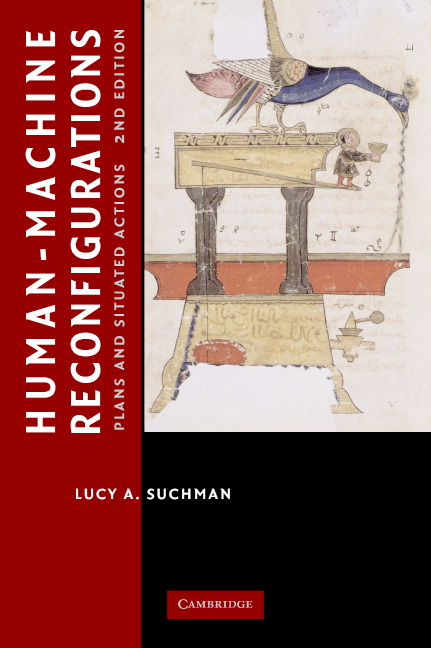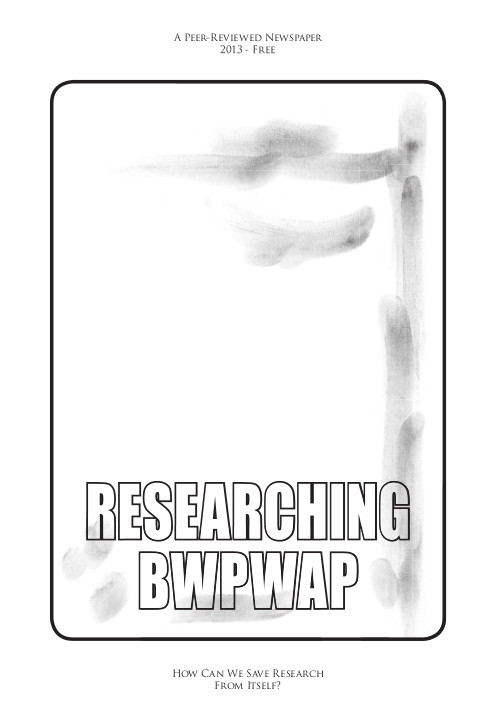Christopher Steiner: Automate This: How Algorithms Came to Rule Our World (2012)
Filed under book | Tags: · algorithm, automation, code, computing, software, software studies, technology

Long gone are the days of jocks and preppies running the trading desks of Wall Street. For more than a decade, a group of math and technology geeks known as the “quants” have completely transformed the financial markets.
Christopher Steiner traces the stories if these quants and their complete makeover of Wall Street. As more an more colleges became hotbeds of quant knowledge, more engineers and math majors infiltrated the job market. And not just on Wall Street but in countless ither fields.
Steiner explores how algorithms and the science behind them are starting to permeate our daily lives, destroying professions and creating new ones. Sooner than we think our music, our food, our medicine, our blind dates, and more will be governed by procedural equations rather than human intuition.
In many cases these innovations are beneficial. But there will inevitably be troubling side effects, like the Flash Crash of May 2010. Steiner explores what will happen, both good and bad, when algorithims more fully control hospitals, transportation and many other fields.
Publisher Portfolio / Penguin Group US, 2012
ISBN 1101572159, 9781101572153
256 pages
review (Evgeny Morozov, The Wall Street Journal)
review (Wendy M Grossman, ZDNet)
Lucy Suchman: Human-Machine Reconfigurations: Plans and Situated Actions, 2nd ed (2007)
Filed under book | Tags: · anthropology, artificial intelligence, cognitive science, computing, ethnomethodology, human-computer interaction, interface, machine, robots, software, technology

“This 2007 book considers how agencies are currently figured at the human-machine interface, and how they might be imaginatively and materially reconfigured. Contrary to the apparent enlivening of objects promised by the sciences of the artificial, the author proposes that the rhetorics and practices of those sciences work to obscure the performative nature of both persons and things. The question then shifts from debates over the status of human-like machines, to that of how humans and machines are enacted as similar or different in practice, and with what theoretical, practical and political consequences. Drawing on scholarship across the social sciences, humanities and computing, the author argues for research aimed at tracing the differences within specific sociomaterial arrangements without resorting to essentialist divides. This requires expanding our unit of analysis, while recognizing the inevitable cuts or boundaries through which technological systems are constituted.”
Publisher Cambridge University Press, 2007
Learning in Doing: Social, Cognitive and Computational Perspectives series
ISBN 052167588X, 9780521675888
314 pages
A Peer-Reviewed Newspaper, 2(1): Researching BWPWAP (2013)
Filed under journal | Tags: · art, artistic research, code, design, economy, education, media art, net art, software

“In referring to the cancellation of Pluto’s planetary status in 2006, BWPWAP (Back When Pluto Was a Planet) – the 2013 edition of the transmediale festival – interrogates techno-cultural processes of displacement and invention, and asks for artistic and speculative responses to new cultural imaginaries. In light of this, the conference and workshop Researching BWPWAP took place in November 2012 in Lüneburg, Germany, organised jointly by Leuphana University of Lüneburg, Aarhus University and the reSource transmedial culture/transmediale. The call for participation focused on Ph.D. researchers and other participants to speculate on BWPWAP as a pretext for presenting their research and even to further reflect on its circulation as a meme.
This newspaper presents some outcomes of this process, and like the conference and workshop, can be interpreted in the context of a research culture that has been significantly destabilized by network culture and digital media. If the planet Pluto didn’t exactly fall prey to an epistemological break or a scientific revolution, but rather to a mundane administrative procedure – a redefinition of what constitutes a planet – then what does this say about contemporary research culture? Certainly, much research culture has shared Pluto’s fate: conferences reduced to networking events to foster cultural capital, and scholarly communications reduced to impact factors measured by grant givers. In other words, research is not just about measuring the performativity of a single researcher (the peer-reviewed journal system), but also the processes of questioning, investigating, speculating, and sharing between peers in a broader sense.” (from the Editorial)
Edited by Christian Ulrik Andersen and Geoff Cox
Publisher Digital Aesthetics Research Center, Aarhus University, Aarhus, in collaboration with reSource transmedial culture Berlin/transmediale, Berlin, February 2013
Creative Commons Attribution-NonCommercial-ShareAlike license
ISBN 8791810256
ISSN 2245-7593
PDF, PDF (updated on 2018-9-20)
Comment (0)
